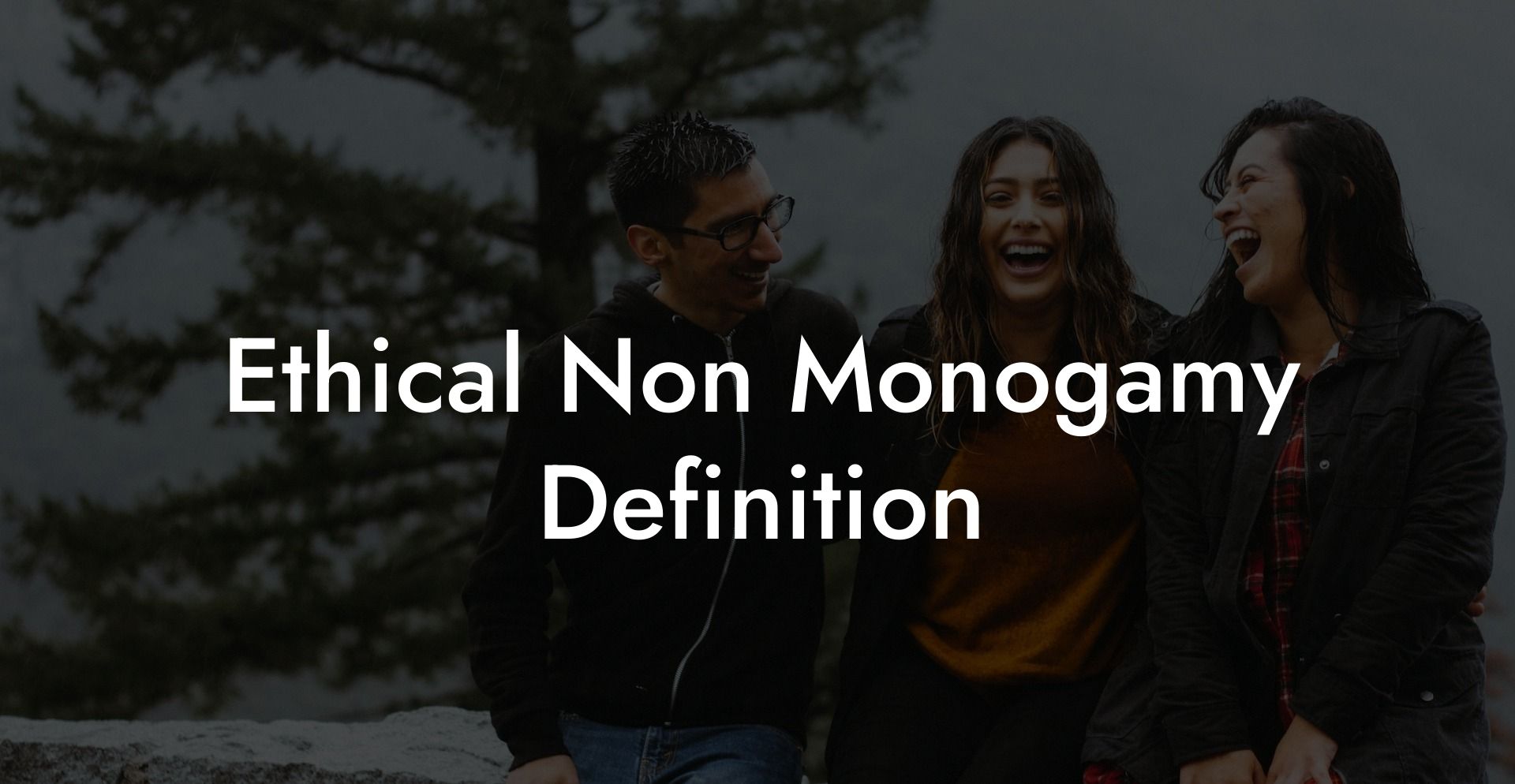In a world where love and relationships are being redefined, it's essential to understand the different approaches people take in seeking connection and companionship. One such approach is ethical non-monogamy (ENM), which has gained attention and traction in recent years.
Ethical Non Monogamy Definition Table of Contents
In this comprehensive guide, we explain the concept of ethical non-monogamy, explore different types of non-monogamous relationships, and share some realistic examples. Finally, we will discuss how to navigate these unique connections with honesty and respect. Dive in to broaden your understanding and share this informative resource with others who might find it helpful.
The traditional notion of a romantic relationship is typically limited to monogamy: two people commit exclusively to one another, both emotionally and sexually. However, not everyone believes this is the only way to experience love and connection. In recent years, ethical non-monogamy has become an increasingly popular option for those looking to expand their emotional and physical experiences.
With society's changing views on love and relationships, understanding ethical non-monogamy ensures that we're respecting the diverse ways in which people choose to connect. Let's explore the concept in greater detail.
Ethical non-monogamy (ENM) involves having multiple consenting partners or relationships, with each participant aware of the arrangement. The key to ethical non-monogamy is honesty, communication, and respect for the emotional and sexual boundaries of everyone involved. It is essential to set rules and have ongoing discussions to ensure that everyone's needs and desires are being met.
There are numerous styles of ethical non-monogamy, and individuals can sometimes be involved in more than one type simultaneously. Some common types include:
Open relationships
Partners agree that each person can have emotional and/or sexual relationships with others. The boundaries of an open relationship can vary greatly depending on the couple's individual preferences and comfort levels.
Polyamory
This form of ENM encompasses multiple committed relationships or deep emotional connections. People who identify as polyamorous often view their relationships as an expansion of love rather than a limitation. Love triangles, throuples, or larger polycules are examples of polyamorous configurations.
Swinging
Often couples who participate in swinging engage in casual, recreational sex with other individuals or couples. Swinging typically involves regular partners or "playmates" rather than deep emotional connections.
Relationship anarchy
A philosophy that questions traditional relationship structures, such as marriage or dating. Individuals in relationship anarchy have relationships that are entirely unique to their needs and rely on mutual agreements rather than societal norms.
Ethical Non Monogamy Example
A realistic example of ethical non-monogamy can be found in a couple named Alex and Taylor, who have been in a committed relationship for several years. Their relationship dynamic started as a monogamous one, which they found satisfying but somewhat monotonous.
After discussing their desires and boundaries, they agreed to try an open relationship. Each person is now allowed to explore casual relationships with others, with the stipulation that primary loyalty and emotional connection remain with each other. This arrangement has improved their communication skills, brought excitement and variety into their lives, and has ultimately strengthened their primary partnership.
In conclusion, ethical non-monogamy is a fascinating modern relationship concept that challenges traditional monogamous values. As our understanding of love and connection evolves, it is crucial to remain open and accepting of diverse relationship dynamics.
If you found this article insightful, don't hesitate to share it with others who might be curious about ethical non-monogamy. We encourage you to explore more of our guides here at The Monogamy Experiment, to get a better understanding of relationship concepts and broaden your horizons. Remember, love is love, and all forms of honest, consensual connections deserve respect.













